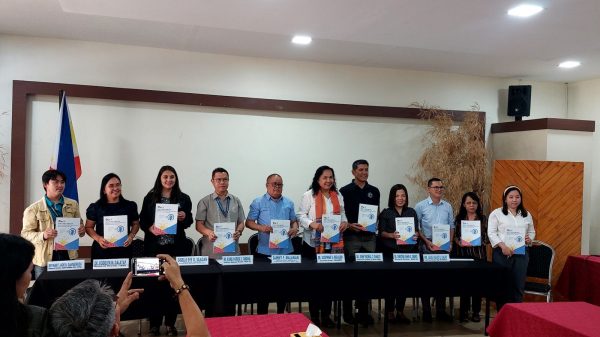KORONADAL CITY, South Cotabato (PIA) — The state universities and colleges (SUC), including the higher education institutions (HEI), in the region expressed support for the implementation of the Soccsksargen Regional Development and Innovation Research Agenda (RDIRA) 2023–2028, with the goal of contributing to the region’s socioeconomic transformation.
Recently, SUCs and HEIs, together with the National Economic and Development Authority and the Department of Science and Technology in Region 12, entered into a memorandum of understanding to ensure the implementation and utilization of the RDIRA.

RDIRA is a compendium of research topics designed to primarily facilitate the implementation of programs, projects, and activities, as well as policies that would help realize the development goals, targets, and aspirations as translated in the Regional Development Plan 2023-2028.
According to NEDA Assistant Regional Director Romel Patrick Tanghal, the proposed studies on the agenda will aid in achieving the goal of a prosperous, inclusive, and resilient Soccsksargen.
He added that the research in the RDIRA will become the basis for policymakers to allocate resources for the implementation of developmental programs, as these studies will fuel evidence-based decision-making.
With this, SUCs and HEIs play a dynamic role in establishing a culture of research.
Dr. Christine Dawn Obemio, research director of Mindanao State University in General Santos City, stated that one way of supporting the RDIRA is to continuously provide an enabling environment for faculty researchers and innovators, as well as students.
“We want to equip them and provide them with specialized training and courses that will strengthen their capacity to do research that is focused on areas strategic to the needs of the region,” she emphasized.
She said that MSU continues to pursue workforce development through collaborative research programs with other HEIs, local industries, the business sector, and non-government organizations.
To the HEIs, mobilizing the students and faculty to advance research is important.
Meanwhile, Dr. John Thomas Franco, executive vice president of St. Alexius College, stated the pivotal role of providing venues for forums and conferences for the presentation of research that has been conducted, passed, or published.
He said that participants will not only be able to witness the significance of their studies, but will also boost their morale.
Engr. Sammy Malawan, regional director of DOST in Soccsksargen, highlighted the potential contribution of the academe in opening opportunities and providing solutions, with strong support from SUCs and HEIs.
“Malaki ang role na ginagawa ng ating mga state university and HEIs doon sa tinatawag nating ‘opening opportunities’ at ‘providing solutions’ kasi ang research, opens opportunity at saka nagpoprovide ng solutions,” he stated.
(Our state universities and HEIs play a significant role in ‘opening opportunities’ and ‘providing solutions’, as research creates opportunities and subsequently provides solutions.)
Malawan also heads the Regional Research, Development, and Innovation Committee, as well as the Soccsksargen Industry, Energy, Emerging Technology Research and Development Consortium (SOXIEERDC) and the Health Research and Development Consortium. (SJDM – PIA Region 12)












